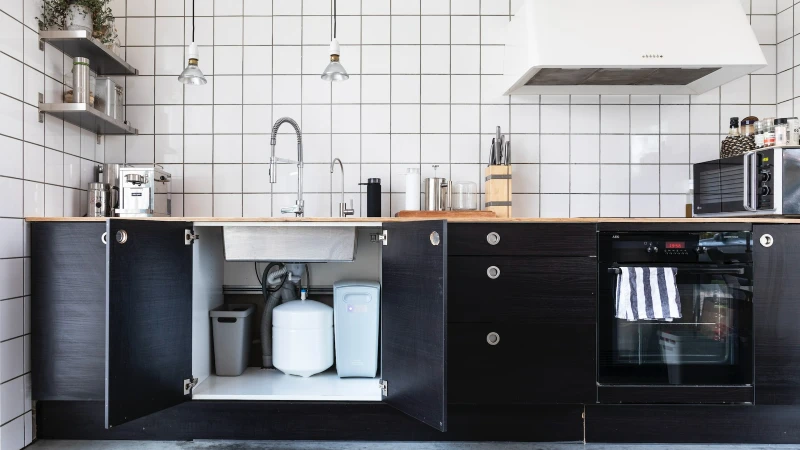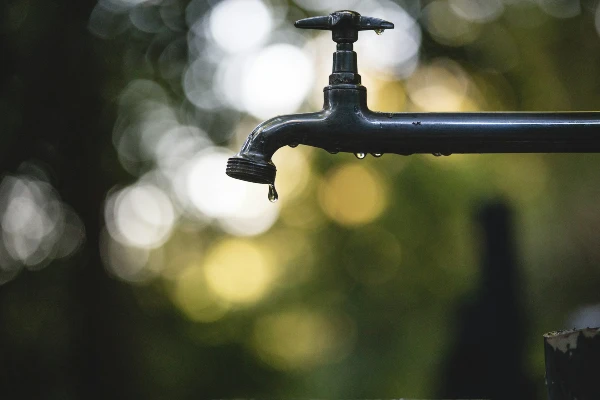Disclosure: This post may contain affiliate links, meaning we get a commission if you decide to make a purchase through our links, at no cost to you. Please read our disclosure for more info.
Did you know that more than 2,000 chemicals are present in US tap water? And only 5% of those chemicals are safe for consumption. Yet many people still drink tap water, unaware of the health risks it poses.
Having a water filtration system is a sure way to keep your family safe from these substances. Filterway is a leading provider of home water filtration systems where you can order water filters online from our vast collection! Not sure how to choose a water filter? We can help you choose the right system for your home.
Read through this blog post and learn how to choose the best drinking water filter for your home.
In This Post:
Determine the Quality of Your Water
First things first, you need to determine the quality of your water before getting a water filter.
Identifying what substances are present in your water will help you select an appropriate water filter for your home.
To determine your water quality, you can run a water test in your home if you have the necessary equipment. A hassle-free way to check the water quality is by requesting a water quality report from your city’s administration. You can also download a water report from the FPA website by providing your location and water system name.
Types of Filters and Water Filtration Systems
Water filtration systems are designed differently to remove specific impurities. Therefore, not all water filters will be suitable for your home water. Currently, there exist different types of water filters, including:
Reverse Osmosis (RO) Filters
Reverse osmosis filtration systems use pressure to force water through a semi-permeable membrane. They’re suitable for filtering water with nitrates, lead, radium, chloramine, organic pollutants, cyst, pesticides, and herbicides.
Downside: Reverse osmosis filters remove essential minerals.
Ceramic Filters
Ceramic filters only use gravity, unlike other systems that use chemicals or electricity. They are basically porous ceramics (fired clay) with pores that trap bacteria and sediments. Some ceramic filters contain carbon to facilitate VOCs and chlorine filtration.
Ultraviolet Disinfection Filters
These filters use UV light to kill living organisms present in water, e.g., staphylococcus, E-coli and other bacteria.
Downside: UV filters only eliminate living organisms but can’t remove harmful chemicals and metals thus, they need to be accompanied by other filters for more effective filtration.
Additional types of water filtration systems for home include Activated Alumina – suitable for water with high dissolved solids levels of sulfates. These use aluminum oxide to absorb the contaminants as water passes the activated alumina cartridge.
Water Filtration vs. Water Purification
Water filtration and water purification are often used interchangeably but mean completely different things. Both processes are used to remove chemicals and impurities from the water and make it safe for drinking.
Water filtration removes sediments, some minerals, and contaminants so that water looks clear, smells, and tastes better, making it safe for consumption and house chores. Processes involved in water filtration include microfiltration, ultrafiltration, and reverse osmosis. In the process, some minerals, viruses, and bacteria may pass through.
Water purification goes a step further in eliminating biological contaminants and removing the unwanted substances left after filtration. Purification removes unwanted impurities either through ion exchange, distillation, adsorption, or UV radiation. To sum it up, when there are dissolved or microscopic elements in the water, purification is preferred. When there are sediments or solid impurities, filtration is involved.
Common Filters and Purifiers for Home
To help you choose the best drinking water filter, here is a list of some of the most effective and widely-used filters:
- Whole-house water filter system – Choosing a whole-house water filter spares you from the burden of installing multiple water filters at every water outlet point in your home. This system is also known as the point of entry system. It filters the water immediately after it enters the main source and ensures water is clean at all outlets.
- Countertop water filters – Countertop water filters are point-of-use systems installed on your kitchen counter. Unlike the whole house water system that cleans the water for the entire household, countertop water systems clean water at the point of use.
- Under-sink water filter – These systems purify a large quantity of water at high speed and are fixed under the sink. They are mostly installed in the kitchen and are more affordable than whole-house water systems.
Conclusion
Water filtration systems are a solid protective measure to keep your family safe from contaminated tap water. Combining both water filtration and purification systems keeps your home’s water free from harmful microorganisms and chemicals. For more information about our water filtration systems, talk to us today!


